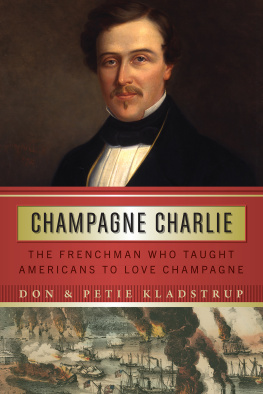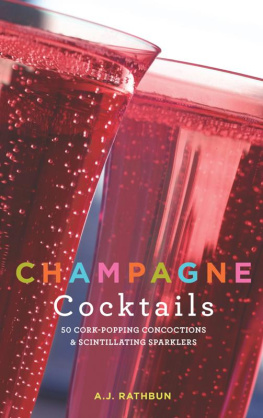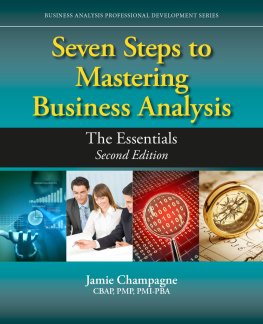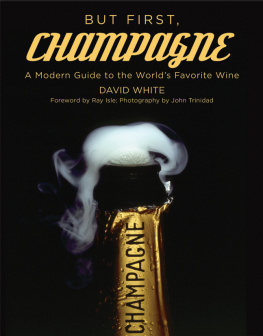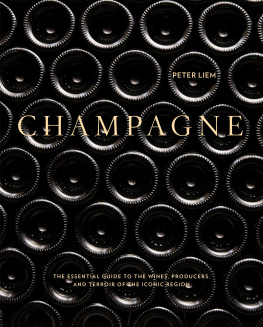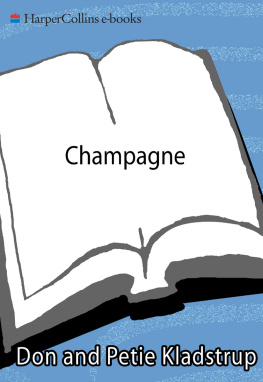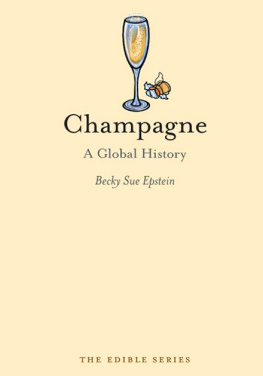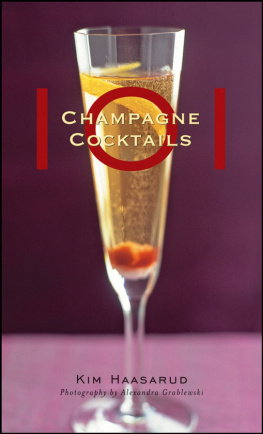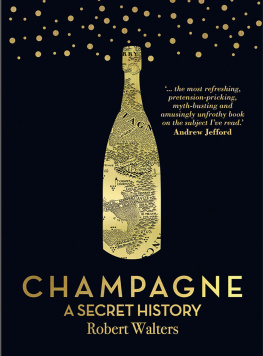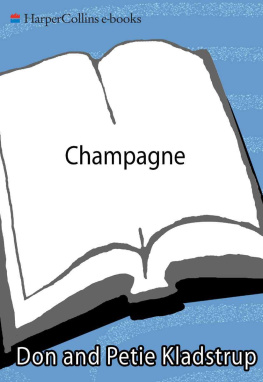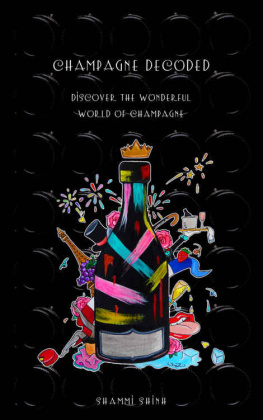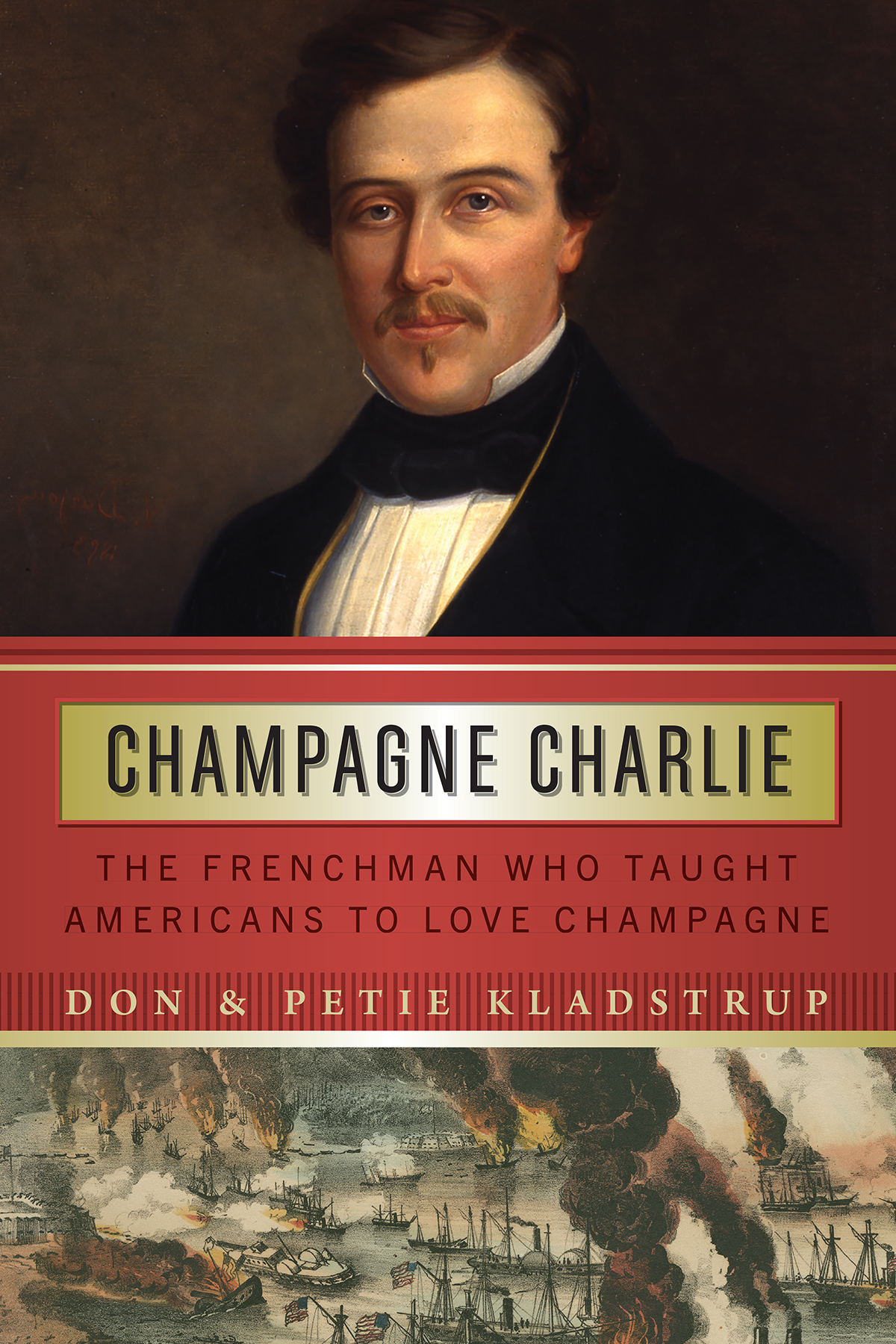
A high-spirited romp through the world of French champagne and antebellum America, chronicling the exploits of wine-merchant sensation Charles Champagne Charlie Heidsieck. Don and Petie Kladstrup are storytellers with a keen eye for a good yarn and with an even keener appreciation of the rich history of the worlds favorite beverage.
Tilar J. Mazzeo, author of The Widow Clicquot: The Story of a Champagne Empire and the Woman Who Ruled It
Like an effervescent de Tocqueville, Heidsieck himself was a keen observer of all things American. Champagne Charlie is U.S. history paired with a primer on champagne. We learn that George Washington employed a wine advisor, that America was once lousy with counterfeit champagne, and that, for a while, cotton was an acceptable currency for purchasing bubbly. Deeply researched, elegantly written, Champagne Charlie goes down as smooth as a glass of Heidsiecks finest. Here is a book worth savoringand celebrating.
Eric Weiner, author of the New York Times best-seller The Geography of Bliss
Champagne Charlie is a fascinating, fast-moving narrative of Heidsiecks remarkable story and the tumultuous times in which he lived.
Lesley J. Gordon, Civil War historian and Charles G. Summersell Chair of Southern History at the University of Alabama
From raging success to humiliating scandal, from creating international thirst to losing all in the jaws of a harrowing Civil War, Champagne Charlie is a true originaland with effervescent prose and connoisseurs savvy, our guides dont miss a moment. As much a history of the maturation of American taste as of self-promoting European sophistication, this entertaining story will have you gently popping a cork in no time! Cheers!
Joseph Spellman, named worlds best sommelier in French Wine and Spirits competition, 1997
Champagne Charlie
The Frenchman Who Taught Americans to Love Champagne
Don & Petie Kladstrup
Potomac Books
An imprint of the University of Nebraska Press
2021 by Don and Petie Kladstrup
Cover designed by University of Nebraska Press; cover images are from the interior.
All rights reserved. Potomac Books is an imprint of the University of Nebraska Press.
Library of Congress Cataloging-in-Publication Data
Names: Kladstrup, Don, author. | Kladstrup, Petie, author.
Title: Champagne Charlie: the Frenchman who taught Americans to love champagne / Don and Petie Kladstrup.
Description: Lincoln: Potomac Books, an imprint of the University of Nebraska Press, [2021] | Includes bibliographical references and index.
Identifiers: LCCN 2021015716
ISBN 9781640123946 (hardback)
ISBN 9781640125025 (epub)
ISBN 9781640125032 (pdf)
Subjects: LCSH : Champagne (Wine)History.
Classification: LCC TP 555 . K 59 2021 | DDC 663/.224dc23
LC record available at https://lccn.loc.gov/2021015716
The publisher does not have any control over and does not assume any responsibility for author or third-party websites or their content.
Contents
Charles Heidsieck felt his knees buckle and the blood drain from his face as Union soldiers hauled him away to prison. Snarls of the man in charge, General Benjamin Butler, a figure nicknamed the Beast, rang in his ears: You are a spy! Youre nothing but a French dog and deserve to be hanged!
For the better part of a year, the man widely known as Champagne Charlie had been roaming the South, shuttling between the ports of Mobile and New Orleans, then parts of the Confederacy, in an effort to collect money for champagne that had been shipped there, money his sales agent had cheated him out of.
But with the Civil War intensifying and a Union blockade of Southern ports tightening, Heidsieck decided it would be better to leave the country and return to France. His planget to New Orleans and make his way to Mexico or Cuba, where hed try to make connections to Europe.
New Orleans, however, had fallen to Union forces. Nevertheless, as a citizen of Francea country officially neutral though sympathetic to the ConfederacyHeidsieck still thought he was safe, that his French passport would protect him. He was wrong. When soldiers discovered he was carrying a diplomatic pouch containing secret dispatches offering help to the Confederates, he was arrested as a spy and thrown into prison.
Was Heidsieck a spy, an agent of the French government bent on helping the South? Or was he merely an innocent businessman, as he claimed, trying to make a name for himself by selling champagne?
Heidsieck had gambled everything to go to America and do business there. He was convinced it was the land of opportunity, a place where he could make a name for himself and his champagne house. He would succeed beyond his wildest dreams, his name becoming synonymous with celebration and good times.
But now, languishing in a federal prison with a hangmans noose awaiting him, he was about to experience the worst of times.
*
The only thing on our minds was a good time.
It was Christmas 1989. We were living in South Africa and about to host a party for some of our colleagues in the news business. At the time the country was still ruled by the repressive system of apartheid, but there were increasing rumors that Nelson Mandela would soon be freed from Robben Island after twenty-seven years of imprisonment.
News media from around the world rushed to step up their presence in the country to be ready for the historic event, many of them headquartered in the same building where Dons office at ABC Television News was based. We invited all of them to our party.
One of our guests was a woman from Soweto, the sprawling Black township outside Johannesburg. Her name was Mpho, which means gift in Zulu. She was the wife of the man who ran the front desk at ABC . Although he spent his days working with a multinational group of journalists who were nearly all white, her life was centered in Soweto. Johannesburg was like a foreign country to her, as it was to most of Sowetos residents, all of whom needed a government pass to enter the city. We made the necessary arrangements to get the couple to our home for the evening.
Wed recently returned from France with several bottles of champagne for the party but were hoping at least one of them would survive so we could have it all to ourselves. Nonetheless, all the bottles were well chilled by the time the first guests came through the door, and Don had uncorked the first of them.
Mpho was visibly nervous when she and her husband arrived. She had never been a guest in the home of a white person before.
It was midsummer in the Southern Hemisphere, and we had tables and chairs outside. Don ushered her to one and asked her if she would like a glass of champagne. She said she had heard of champagne but never tasted it. She wasnt sure if she would like it; it sounded strange. But because everyone else was drinking it, she bravely agreed to try just a little.
Don poured about half a glass and smiled. It may tickle your nose, but dont worry, he said. If you dont like it, we have other stuff.
Looking puzzled and wary, Mpho very cautiously lifted the glass to her mouth, barely wetting her lips.
And then a small surprised smile appeared, quickly growing into a gorgeous grin. There was a glow in her eyes and a look of pure wonder on her face.
With that look of discovery and delight still on her face, she shyly asked, Could I have a little more, please?
Rarely has champagne given us more pleasure than it did then, for in that brief moment, champagne did what it has done millions of times before and since: it broke down barriers, set the stage, and started the celebration.
Next page
